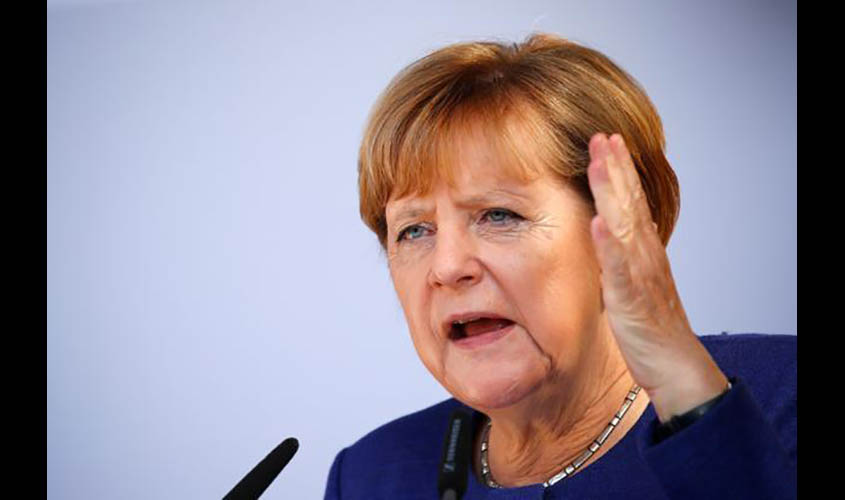It’s been a bumpy few years for the pollsters. Surveys overestimated support for Angela Merkel’s party in last September’s German elections, having correctly identified Emmanuel Macron as the front-runner in a competitive field in France earlier in the year. In the last two national contests in the UK, most pollsters expected a knife-edge result in 2015 and a comfortable Conservative victory in 2017, but got precisely the reverse. Before our 2016 referendum most surveys suggested the country would vote to remain in the European Union, and a few months later many received a second shock with the election of President Donald Trump.
Forecasting election results has become trickier. Electorates have become more unpredictable, strength of support and people’s likelihood actually to turn out and vote is harder to account for, and busy people are more reluctant to take part in polls. But polling is more than a slightly wonky crystal ball for predicting what people will do at the ballot box. Done properly, opinion research serves a much wider and more beneficial purpose. In a world that seems ever more divided and complicated, there is more value than ever in trying to understand what different people think and why they think it.
In politics, the great benefit of polling is as a reality check. In my experience, people in the political world can have the most extraordinary capacity for self-delusion. They can easily fail to grasp how others see them, and consequently misjudge their level of support. In fact, this is what led me to start polling in the first place. In the run-up to the 2005 general election the Conservative Party, to which I had been a major donor, started to claim it was on course for victory. This sounded so unlikely to me that I decided to commission my own research, which found that it was in fact heading for a third consecutive defeat at the hands of Tony Blair: the result that did, in fact, come to pass. Not only that, it revealed in gruesome detail how toxic the Tory brand had become: the party needed to set about changing the widespread view that it was out of touch, stuck in the past, and not on the side of ordinary people. These lessons were crucial in helping the Conservatives back into government five years later.
Politicians are also prone to misreading the extent to which they are articulating the voters’ priorities. Inevitably, each will have his or her own hobby horse (or area of particular interest, it would perhaps be kinder to say), and the temptation to assume that these are shared by their constituents can be hard to resist. Parties will always be more comfortable talking about the issues on which they are traditionally stronger and ignoring the things they fear will take them into a debate only their opponents can win—even when these things are at the top of the public agenda. Those that overlook public concerns will eventually pay the electoral price, but sometimes the whole political class can seem unwilling to address something that is on the voters’ minds. When large numbers think mainstream politicians are failing to take seriously things like genuine concerns over immigration, or questions of culture or identity, they might look for answers elsewhere. Good polling, showing the mood of the nation rather than that of the supporters and activists who tend to bend legislators’ ears, can help to show when this is in danger of happening. It can also help us understand events—my work on the Brexit referendum and Donald Trump’s election has helped to show who voted which way, and why.
Research can also be a reminder that the way politics is conducted can be terribly off-putting to many people. The language used can be impenetrable—even common political terms like left and right-wing are not always widely understood outside the political world—while the tendency to bash the opposition and give the appearance of treating the whole thing as a game causes people to switch off.
This is not to say politicians should do whatever polls say the majority want. Leaders must lead, and that sometimes means doing things large numbers won’t like. In that case, they should know when they need to persuade. Sometimes they will be unable to meet popular demands, in which case they need to know what they have to explain. Polling doesn’t have all the answers—as Henry Ford famously said, if he had started out by asking his customers what they wanted, they would have said “a faster horse”—but it can show how people are feeling, and thereby help bridge the gap between the political world and the people it is supposed to represent.
Grasping popular sentiment can bring benefits outside politics. As part of my work as the UK Prime Minister’s special representative on veterans’ transition, for example, I found that while the public admired those leaving military service they greatly overestimated their likelihood that they had suffered damage, especially to their mental health—something that might create an extra barrier for them in their return to civilian life. Correcting these misapprehensions has become a priority: a concrete example of how understanding public opinion can lay the foundations for improving lives.
Polling is imperfect, is not always conclusive, and doesn’t tell you what to do. But if you want to know what people think and why, you have two options: you can guess, or you can find out.
Lord Ashcroft is an international businessman, author, pollster and philanthropist. His research is published at LordAshcroftPolls.com and you can follow him on Twitter: @LordAshcroft

